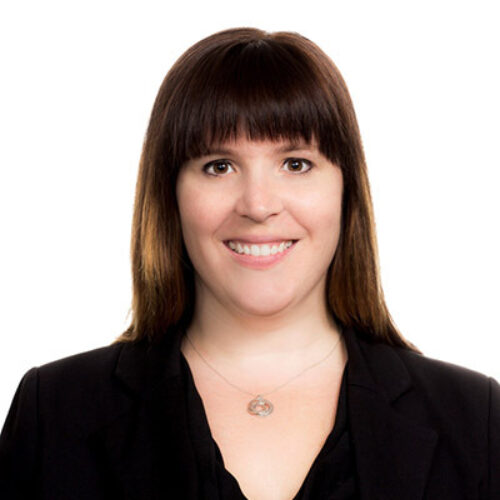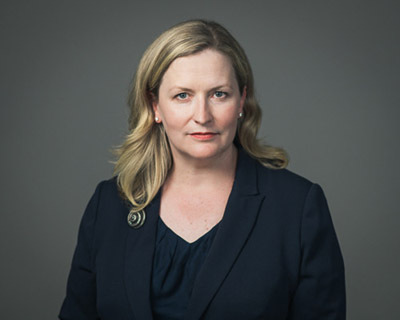- Summer 2023
- With My Own Two Hands

Elizabeth Nicholson speaks with Ingrid King, barrister at Tenth Floor St James Hall Chambers, about her work as a director of SPELD NSW, a registered charity advancing the interests of children with specific learning difficulties.
Elizabeth Nicholson (EN): Can you tell me a little bit about SPELD NSW and what that organisation does?
Ingrid King (IK): SPELD is a charity providing support, assistance and advice to children and adults with specific learning difficulties, their families, tutors, teachers and schools. A very important aspect of SPELD’s work is that we run an Infoline for parents and carers, which provides them with information about our services and will also put parents in contact with other services who can provide support to their child, including referrals to services in a person’s local area. SPELD also operates a clinic where a parent can bring a child to be assessed by a psychologist if they suspect their child has a learning difficulty. We also run accredited professional development courses for teachers, which teach evidence-based strategies to improve the way they educate students with specific learning difficulties. We run a bookshop that assists in funding our other work, where we sell decodable readers which reflect evidence based approaches to literacy education. Through the bookshop, SPELD also offers a consulting service to schools, including working with schools to update the selection of decodable readers offered to students (the dreaded book boxes known to every parent of an infant aged student).
EN: Can you tell me a little bit about what motivated your decision to get involved with SPELD NSW?
IK: I have corporate governance experience from my professional career, but my perspective is also informed by being a parent of a child with a specific learning difficulty. My daughter has a specific learning difficulty in writing, which wasn’t diagnosed until she was about 14 years old. For her, primary school and high school were really difficult. We spent a lot of time and effort trying to make that experience better for her, but the culture of primary and secondary education is still not very accepting of kids with specific learning difficulties. I felt I had to spend a lot of time explaining things to her teachers, and also trying to advocate for her. So, I became interested in advocating through a role with SPELD. If I could do one thing through my work with SPELD, it would be to make schools a friendlier environment for children who have specific learning difficulties. The statistics show that there are many children in mainstream education with learning difficulties.

EN: Can you tell us a little bit about what your role as a director of SPELD requires?
IK: My role as a director requires attending Board meetings and there is reading in advance of those meetings. Sometimes there may also be ad hoc enquiries from the Chair that require a response. I am sometimes also involved in sub-committees as well (which have additional meetings). Normally, the Board meets six or seven times each year and those meetings can take between one hour and four hours on some occasions. During the pandemic, however, there was a lot of additional work at that stage as we moved into online learning and working out how to support children and families during that period. We observed a significant uptick in the phone calls to the parental Infoline during that time as more parents realised that their child wasn’t learning or engaging in remote learning in the expected way. As you can imagine, online learning caused particular challenges for children with specific learning difficulties (particularly in absorbing information by listening) so that was an especially busy time in this role.
EN: Do you find it difficult to balance your role at SPELD NSW with your work as a barrister?
IK: It is something of a juggle and a struggle. But – busy people get things done! Most of us at the Bar are privileged to one extent or another, and I like paying that forward and contributing to the community. For me, that includes doing a few pro bono cases every year and also my work with SPELD.

EN: It obviously takes time and effort to give back your time in a volunteer capacity, but have there been any personal benefits for you in doing so?
IK: Absolutely. I value the relationships I have with the people who work at SPELD and those on the Board. I’ve also learned a lot more about the educational sector and advocacy work in this role. I also find that the more work that a person does in different fields, it cross-pollinates their skill set. So, there is definitely a benefit for me personally, as well as feeling good – which can’t be underestimated either. The work that I do as a director of SPELD offers something different to my professional career, and I appreciate the element of balance that it brings.
EN: Do you have any advice for NSW barristers who would like to explore a volunteer role on a Board?
IK: If you don’t have corporate governance skills already, I would strongly recommend that you get them before taking on such a role. There are a lot of educational programs which teach those skills to people who don’t have them – you might look at the programs offered by the Women Barristers Forum or the AICD Company Directors Course. You should also make enquiries about insurances – such as the extent to which your professional indemnity insurance protects you, as well as whether the organisation has a Directors and Officers insurance policy in place, and other appropriate arrangements. Finally, I think it’s useful to find a role where you have an interest (whether personal or professional) in the work that the organisation does.
EN: If NSW barristers have someone in their life who might be assisted by SPELD NSW, how would they go about accessing its services?
IK: SPELD has a great Infoline, (02) 9739 6277, that it runs for parents or carers. It’s a free service that you can call, and you can get information about the services SPELD offers, and they can also provide referrals to services in your local area. If you are a parent of a school-aged child, you can also recommend to the school that they send their staff teachers to SPELD professional education programs as part of their continuing education. If you have concerns about the way your child is learning, particularly if you observe unevenness in their ability to learn, you should make contact with the Infoline to discuss the ways that SPELD might be able to help.

EN: If NSW barristers wanted to be involved in donating or helping SPELD NSW in another way how might they go about that?
IK: We raise funds for SPELD, and the Infoline through donations, so any donations would be very welcome. We also raise funds through our online book shop, so people can contact us if they’d like to purchase any home readers, or alternatively suggest to their child’s school that new readers be purchased from SPELD.
The SPELD Infoline for parents and carers is (02) 9739 6277. For any information about SPELD NSW and its services, or to make a donation, visit www.speldnsw.org.au. BN
